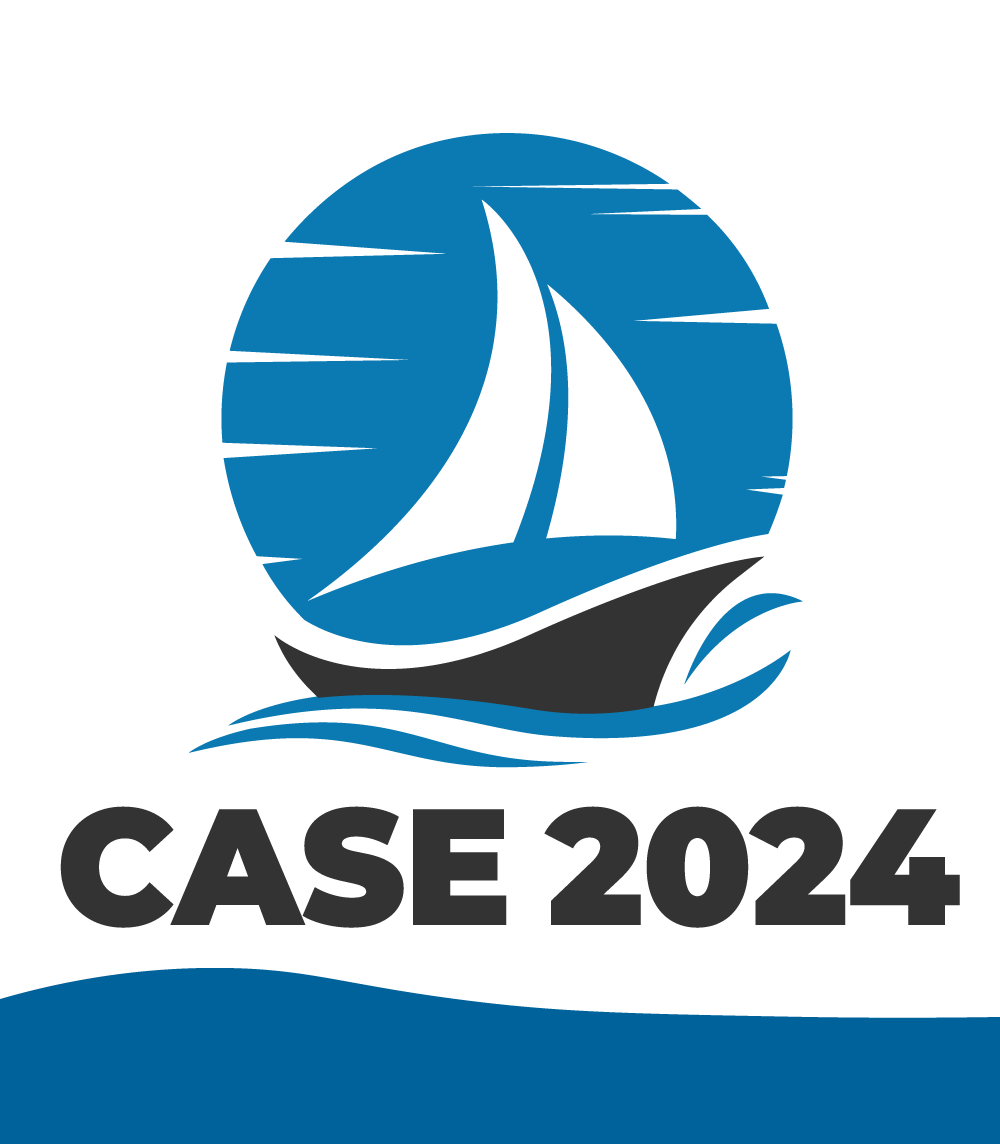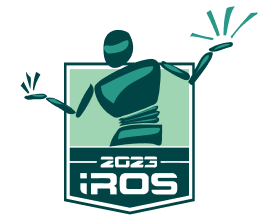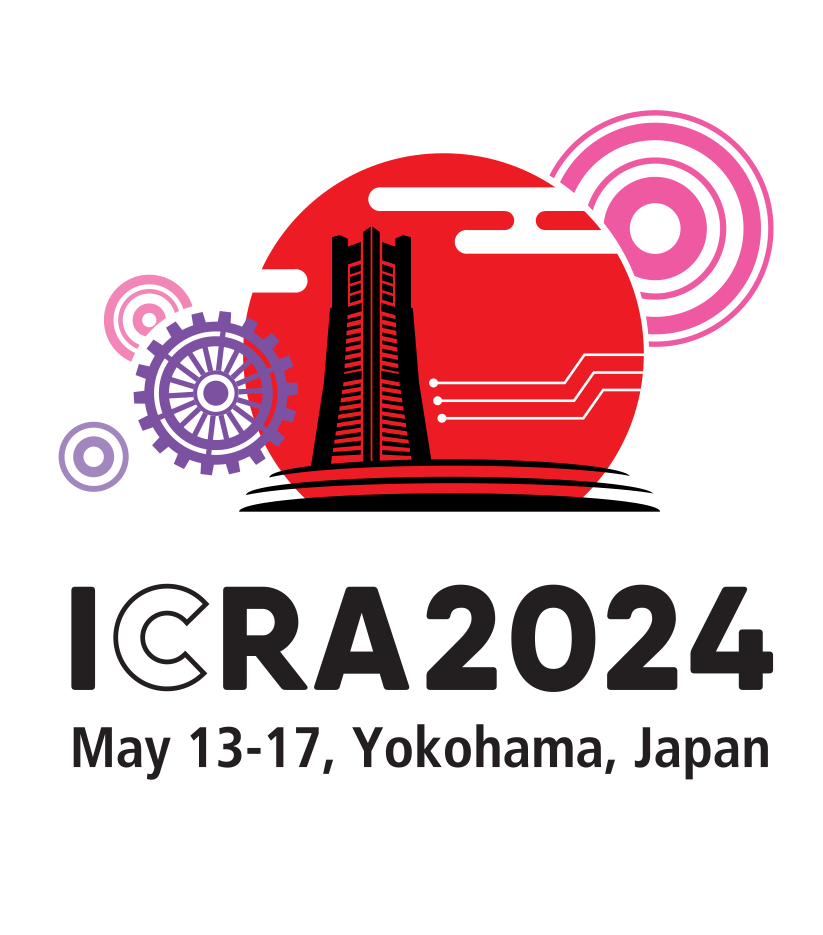- Home
- About RAS
- Latest News
- 2022 RAS AdCom Election- VOTE NOW!
2022 RAS AdCom Election- VOTE NOW!
13 Candidates vie for RAS AdCom seats--voting starts 13 October 2021
Candidates from RAS Geographical Area 1 (IEEE Regions, 1, 2, 3, 4, 5, 6, 7, 9)- Americas
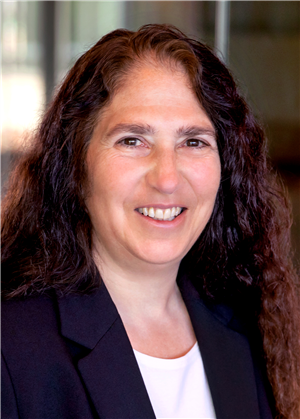
Urbana (IL), USA
Nancy Amato
NANCY M. AMATO, US
Nancy M. Amato (S’93-M’94-SM’08-F’10) is Head of the Department of Computer Science and Abel Bliss Professor of Engineering at the University of Illinois at Urbana-Champaign. Amato received undergraduate degrees in Mathematical Sciences and Economics from Stanford, and M.S. and Ph.D. degrees in Computer Science from UC Berkeley and the University of Illinois, respectively. She was program chair for ICRA 2015 and RSS 2016, and currently serves on the RSS Board, as Chair of the WAFR Steering Committee, and on the Editorial Advisory Board of the Springer Tracts in Advanced Robotics (STAR) Series. She is an elected member of the Computing Research Association (CRA) Board of Directors (2014-2023) and is Chair of the CRA Executive Committee (2021-2023). She was co-Chair of CRA-Women (2014-2017) and the NCWIT Academic Alliance (2009-2011). She is a Fellow of AAAI, AAAS, ACM and IEEE.
IEEE ACTIVITIES:
COMMITTEES/BOARDS:
- Vice President, Member Activities, IEEE RAS, 2018-2021
- Chair, IEEE Robotics and Automation Technical Field Award Committee, 2016-2018
- Chair, IEEE RAS Electronic Products and Services Board, 2012-2017
- Member, IEEE RAS Nominations Committee, 2016-2018
- Member, IEEE RAS PAB, 2016-2017
- Member, IEEEE RAS CAB, 2015-2017
- Member, IEEE RAS Women in Engineering Committee, 2016-2017
- Member, IEEE Robotics and Automation Technical Field Award Selection Committee, 2014-2015
- Member, IEEE RAS Electronic Products and Services Board, 2009-2011
- Member, IEEE RAS Fellows Evaluation Committee, 2010, 2012
- Member, IEEE RAS Steering Committee for Technical Programs, 2009-2010, 2014-2015
- Member, IEEE CS Fellows Evaluation Committee, 2010, 2012, 2013
- Member, IEEE Sensors Council Fellows Evaluation Committee, 2013
REGIONS:
- 1995-present: Region 5
CONFERENCES:
- Program Chair, IEEE International Conference on Robotics and Automation (ICRA), 2015
- Program Co-Chair, IEEE International Conference on Robotics and Automation (ICRA), 2018
- Editor-in-Chief, Conference Paper Review Board, IEEE/RSJ International Conference on Intelligent Robots and Systems (IROS), 2011-2013.
- Editor, IEEE Robotics and Automation Society Conference Editorial Board (CEB), 2006-2010.
- Awards Co-Chair, IEEE International Conference on Robotics and Automation (ICRA), 2018.
QUALIFICATIONS:
Starting with my service on the IEEE RAS AdCom (2009-2014) and then by my service as IEEE RAS EPSB Chair (2012-2017), and now as VP for Member Activities (2018-present), I have had an opportunity to learn about the spectrum of activities of the society and, for the past 3.5 years, I have been focusing on Member Activities. My role as EPSB Chair gave me a chance to work with all the RAS Boards, including MAB, to understand their activities and to attempt to support their needs. Also, although EPSB Chair is not a VP (yet), they do attend ExCom meetings and so I have been attending meetings of the RAS Leadership since 2012. For the past 3.5 years, I’ve been serving at the MAB VP, and so I’m very familiar with the many programs and committees that fall under the MAB umbrella.
MAJOR ACCOMPLISHMENTS:
- Member Activities Board (MAB), Vice President (2018-present)
Impact: As MAB VP, I have brought on more Associate VPs and formed a MAB ExCom and, together with the RAS staff, we have been working to provide more structure to better manage and coordinate the many committees and programs managed by MAB. This larger team is providing additional leadership opportunities for RAS members. We have tried to put in place mechanisms to facilitate regular reporting by the RAS member communities and MAB committees to AdCom and generally better publicity and communication through regular generation of news items, columns in RAM, etc. There is still room for improvement, but we have made progress.
We have revised the RAS Distinguished Lecturer Program so that each TC has the opportunity to nominate three lecturers, one from each of the RAS regions; although it has only been in place a short while, the program is seeing increased activity.
In terms of member communities, the Life Member Committee has been formalized as a standing committee and changes to the ByLaws to finalize this have been drafted (but not yet adopted). The Women in Engineering (WIE) committee was charged with reviewing the participation of women in the RAS conferences and produced a very interesting study.
- Electronic Products and Services Board, Member (2009-2011), Chair (2012-2017).
Impact: As EPSB Chair, I managed the process of developing a new RAS website, including obtaining quotes from several external providers, working with the selected provider and RAS members to design and deploy the new site, and managing and overseeing the continual development of the site. The website now includes news, a calendar, feeds from the RAS publications (RA-L, RAM, T-ASE, T-RO), and IEEE Spectrum, as well as customized support to include items specific to different RAS member communities (e.g., the student activities).
As EPSB Chair, we worked with other RAS Boards to support their activities, including TAB to develop templates for microsites for the RAS TCs, with MAB to develop support for the Young Reviewers Program (to pair junior reviewers with senior reviewers to mentor them in reviewing papers), and with CAB to develop templates and other support for conferences.
Finally, I began managing (still do today…) the Robotics History Project that was started by Oussama Khatib and Peter Corke. An initial set of more than 100 interviews were conducted and the project is now reaching maturity, with current emphasis on working with IEEEtv to develop engaging teaser videos and in transferring the interviews and videos to IEEE History and the RAS website.
- Program Chair, 2015 IEEE International Conference on Robotics and Automation.
Impact: As program chair of ICRA 2015, working together with General Chair Lynne Parker, we introduced a number of innovations, including: a Late Breaking Results Poster Session, a Career Fair, a PhD Forum, a Developing Countries Forum, a one-day track (in collaboration with CAB) featuring highlights from other RAS Conferences (ARSO, CASE, HAPTICS, and HUMANOIDS), a special collaborative session with AAAI on the 50th Anniversary of Shakey the Robot, a special sneak preview of ROBOTS – A National Geographic Movie, and several unique outreach events including Go, Girl, Go! which was an all day Saturday event organized in collaboration with FIRST Washington reaching 500+ girls in 6th to 12th grades, the ``Becoming a Robot Guru” workshop intended to introduce undergraduates and early graduate students to robotics, and a workshop co-sponsored by the CRA-E on training faculty on how to engage undergraduates in research. Other conferences are now including some of these features: IROS 2015 and 2016 include Late Breaking Results Poster Sessions, RSS 2016 included a Robot Guru Workshop 2, ICRA 2017 will include the RAS Conference Highlights, etc.
The innovative session format which consisted of brief 3-minute spotlight talks for all papers (8 or 9) in the session followed by an interactive session of 40 minute in the same session room was preferred by a large percentage of the ICRA attendees in the post conference survey and should be considered when it can be accommodated by the venue.
According to the typical metrics, ICRA 2015 broke many records, including: 2275 submissions, 3000+ conference attendees, 1400 workshop attendees, 8 women featured in keynotes and plenaries (just more than 50% of the 15 speakers), and generated more than $500,000 in surplus.
- Inaugural Editor-in-Chief, Conference Paper Review Board, IEEE/RSJ International Conference on Intelligent Robots and Systems (IROS), 2011-2013.
Impact:I served as the inaugural Editor-in-Chief of the Conference Paper Review Board for IROS when that reviewing models was introduced to IROS after its successful use for ICRA. This required adapting the successful model used in ICRA to the IROS community, working with the IROS Steering Committee and the Program and General Chairs of IROS 2011, 2012, and 2013. The process was well received and has now been institutionalized as a part of the IROS review process, and things have run well under Wolfram Burgard and the others who succeeded me in that role.
Position Statement: With the continuing growth and adoption of robotics in all areas, it is an extremely exciting time for roboticists. At the same time, we have an increasing responsibility to ensure that these great opportunities are accessible and open to all. I am proud of the progress that RAS has made in developing programs and activities to serve our members and increase the access to our field and am excited to see the impact they will have in the future.
As an AdCom member, if elected, I will work to ensure that we continue to improve and support the many excellent initiatives that are currently in place and will also work with the AdCom and ExCom to identify new opportunities to meet the needs of our members. The AdCom also has an important stewardship role in ensuring that we continue to use our resources (both our members’ time and our society’s financial resources) wisely and I will take that responsibility seriously. In short, if elected, I will do my best to ensure that RAS remains an important, relevant and inclusive society.

Montreal, Canada
Inna Sharf
INNA SHARF, Canada
Inna Sharf (S’89-M’90) Dr. Inna Sharf is currently a full professor in the Department of Mechanical Engineering at McGill University, Montreal, Canada. She received her B.A.Sc. in Engineering Science, specializing in Aerospace option, from the University of Toronto. She completed her PhD at the Institute for Aerospace Studies, University of Toronto and in January 1991, joined the Department of Mechanical Engineering at the University of Victoria (UVic) as an Assistant Professor and holder of the NSERC’s Women’s Faculty Award. Sharf’s research activities at that time were focused on the dynamics and modeling of space manipulators, such as Canadarm. In the ten years at UVic, she collaborated with several industries, most notably, with MDA (former Spar Aerospace). In 2001, Sharf relocated to McGill where she took up a position as Associate Professor. At McGill, Sharf founded the Aerospace Mechatronics Laboratory, initially dedicated to studying robotic grasping of satellites and debris in space. Since its inception in 2003, the research in the lab expanded to include problems in control, motion planning and state estimation for autonomous robotic systems, specifically, unmanned aerial vehicles, legged and mobile robots. Sharf is presently participating in the NSERC Canadian Robotics Network (NCRN) where she is contributing through the development of autonomy for timber-harvesting machines and small rotary UAVs. Sharf has published over 150 conference and journal papers on her academic research, many of these in IEEE societal publications. She teaches courses in the areas of mechanics, systems and controls and robotics. She is an associate fellow of AIAA and a member of IEEE and ASME.
IEEE ACTIVITIES:
- Regular reviewer for IEEE Transactions on Robotics and Automation, IEEE Robotics and Automation Letters, ICRA, IROS, IEEE-RAS International Conference on Humanoid Robots, over the past 25 years.
- ICRA 2019, Competitions co-chair
- Associate Editor for IROS 2021
- Co-chair of several sessions at ICRA/IROS over the past 15 years.
QUALIFICATIONS:
I have been a member of IEEE since my graduate student days, joining the society to attend my first ICRA in 1988. Although I have not had any service appointments directly with IEEE or IEEE-RAS, I believe I have other qualifications to make me suitable for this position. I have held numerous administrative and service positions in my department, faculty, University and for profession at large. These range from serving on Tenure and Promotions committees, chairing the graduate admissions committee, serving as a disciplinary officer for the faculty, serving as Associate Editor for two journals, etc. One particular example of service to my department I want to highlight is as a chair of the Advisory Faculty Search Committee in 2017 and in 2019. In these years, I led two faculty searches, respectively, to fill a total of 5 faculty positions in my department. My goal for these searches was to attract and hire excellent women candidates for all positions. Indeed, I almost succeeded: in the first search, for all three faculty positions, women were hired and in the second search, one out of two positions was filled by a woman candidate. This was an unprecedented faculty search outcome for my department and in fact, for my faculty, and it was no easy feat. It required a huge amount of effort on my part: both in terms of finding and encouraging high-caliber women candidates to apply for our positions as well as to deal with internal resistance to how I conducted the search.
One other example of my past experience which I believe will be helpful to my service on AdCom of RAS is my work in the role of Acting Director of NCRN (NSERC Canadian Robotics Network). I undertook this role about six months after the network officially started, when the Director/PI took a leave from McGill to work in industry. I was pretty much thrown in the position: the previous network manager had left; the network had to get rolling as not much happened in the first six months; there were issues with some of the industrial partners in the network, etc. I took full ownership of the network by setting the tone, initiating the regular network activities and introducing new ones, in other words, getting the network working. I am proud of what I accomplished in my year as Acting Director of NCRN and am thankful for the opportunity to have served in that role.
In all, I am strongly committed to service and will work hard for IEEE RAS to advance the society’s mission, the Robotics and Automation discipline and any specific tasks and objectives that need to be fulfilled.
Position Statement: There are several things that I feel strongly about and I would like to pursue them if I am elected to serve.
Ethics in Publishing and Reproducibility of Results: IEEE RAS sponsors and co-sponsors numerous conferences and oversees publication of several journals. It has become an established trend in robotics publishing to present one’s best results, mainly to ensure the publication of the work by showing that the authors’ results are superior to others in literature. I would like to see a more honest and less competitive publication framework where there is a stronger onus placed on the authors to present their work so that: 1) it is reproducible; 2) it presents an honest comparison to other solutions; 3) it presents not only successes but also failures, with appropriate analysis and discussion. I believe this will be a better way to serve the research community and ultimately allow for faster advances in the field, as well as knowledge transfer to industry. I would also like to see the society enforce more concrete guidelines for authorship of publications, for example, by requiring the authors to make a statement on their contribution to the work.
Innovation in RAS Conferences and Initiatives: The two society sponsored flagship conferences, ICRA and IROS, have witnessed a progressive growth in terms of numbers of papers submitted and conference attendance. The global pandemic forced our community to go online which created a drastic shift in how these conferences are run and organized, as well as the impact they have on the community. I would be interested in working with the society to undertake a critical evaluation of the outcomes from on-line conferences, to identify the benefits and disadvantages and to lay out a new roadmap for ICRA and IROS in the post-pandemic world. The pandemic presented us with opportunities to do things differently and we should take the best outcomes from the past two years and integrate them into the organization and execution of future conferences.
Increasing Participation and Visibility of Women Roboticists as well as Members of Other Underrepresented Groups: I believe strongly in promoting participation and advancement of women and other underrepresented groups at all levels of the community. The society has made huge advances in this regard already (the increased number of women serving on this committee alone is an excellent example), and it must continue to stay the course. I will participate actively in continuing promotion of women and other underrepresented groups in events organized by society, and in service to the society.
In summary, I will work towards improving the quality and impact of societal publications, towards innovation in society sponsored conferences in light of the pandemic experiences and, towards further promotion and inclusion of underrepresented groups in participation at all levels and initiatives of the society.
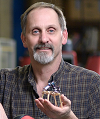
West Lafayette (IN), USA
Richard Voyles
RICHARD VOYLES, US
Richard Voyles (S’92-M’97-SM’00) As the current Daniel C. Lewis Professor of the Polytechnic at Purdue University, my career spans the key aspects of robotics and automation that are touched by RAS. I have worked in companies big and small, private and public universities, and the U.S. federal government. The companies include established giants like IBM, mid-stage growth companies like Integrated Systems (acquired by Wind River, then Intel), small firms like Dart Controls, and several startups. The bulk of my career has been in academe, holding tenured positions at the University of Minnesota, Computer Science and Engineering, University of Denver, Electrical and Computer Engineering, and Purdue University, Engineering Technology. My government posts include the National Science Foundation (NSF), as founding Program Manager of the National Robotics Initiative (NRI) and co-founder of the Innovation Corps, and the White House Office of Science and Technology Policy (OSTP) as the Assistant Director of Robotics and Cyber-Physical Systems. I have extensive publications, a few patents, and a long history of building bridges within the RAS community. BSEE, Purdue, MSME, Stanford, PhD Robotics, CMU.
IEEE ACTIVITIES:
COMMITTEES/BOARDS:
- Current member of the RAS Administrative Committee
- Current Member of the Technical Activities Board
SECTIONS/CHAPTERS:
Organized a panel for the Central Indiana Section (CIS-IEEE) Engineering Conference, 2017
STUDENT BRANCHES:
Helped found the IEEE RAS Student Chapter at Purdue, including fund-raising and program development for new student members.
SOCIETY:
- Technical Committee on Safety, Security and Rescue Robotics, Co-Chair for 6 years
- Chair of the Selections Committee for the RAS Distinguished Service Award and the Nominations Committee of the IEEE Pioneer Award
- Member, Technical Activities Board
CONFERENCES:
- General Chair, IEEE Safety, Security and Rescue Robotics (SSRR) Symposium, 2009, 2015
- Program Co-Chair, IEEE Safety, Security and Rescue Robotics (SSRR) Symposium, 2008, 2010, 2011
- ICRA Conference Editorial Board, Editor, 2017-2019
- ICRA Conference Editorial Board, Associate Editor, 2014-2017
- ICRA, IROS Program Committees
OTHER:
Associate Editor, IEEE Transactions on Automation Science and Engineering (T-ASE), 2013-2016
QUALIFICATIONS:
In addition to serving as a current member of the AdCom and TAB, I have extensively served the local, national and international RAS community in many ways, mostly through collaborations with IEEE officials, rather than through explicit IEEE positions of my own. My service to the US National Science Foundation (NSF) often involved consultation with IEEE RAS elected officials both in the United States and internationally in coordinating multi-lateral funding programs (including Japan, South Korea and Europe) and research workshops (often at IEEE RAS conferences). My service to the White House Office of Science and Technology Policy under the Obama administration gave me a unique vantage point on national and international policy and the importance of the IEEE as an ally on such things as the Fukushima incident (during which I helped formulate robotics talking points and action items for the Obama/Abe summit) and the Ebola crisis (during which I helped organize technical workshops and international aid to Africa). I am excited by the opportunity to continue lending my enthusiasm for the RAS community in the service of the IEEE.
MAJOR ACCOMPLISHMENTS:
As part of my work on the AdCom, I chaired the Selections Committee for the RAS Distinguished Service Award and the Nominations Committee of the IEEE Pioneer Award. While these are not high-effort committees, they are both very critical to the mission of RAS. The Distinguished Service Award helps recognize the hard work of our best internal champions, while the Pioneer Award is an IEEE-level award that gives us an opportunity to promote the impacts that RAS engineers have on society, as a whole.
At NSF, as the founding Program Director of the U.S. multi-agency National Robotics Initiative (NRI), I established all procedures and policies for the coordinated proposal review of four federal agencies. The program was the first NSF program with “robotics” in the title in nearly 15 years and was personally announced by President Obama. In the first year, alone, the NRI garnered nearly 800 proposals requesting an aggregate of over $ 1 billion, US. As the lone managing Program Director, I was responsible for over 10% of all the proposals submitted to the CISE (computer science) Directorate in fiscal year 2012 that were processed on schedule with only one mishap. I subsequently justified a second robotics Program Director to help run the program. I received one of three Director’s Awards that year for my work on the NRI.
At NSF, I was a co-founder of the NSF Innovation Corps, with IEEE member Errol Arkilic. The Innovation Corps was a radically new approach to entrepreneurship education built on the “Lean Launchpad” of Steve Blank and others that was also announced by President Obama. The “I-Corps” approach to entrepreneurship is engineer-friendly in that it takes a hypothesis-based approach to the business plan, as opposed to the traditional business school approach. I received the second of three Director’s Awards for the I-Corps launch.
For OSTP, I helped develop robotics talking points for the Obama/Abe Summit in 2014 with DARPA Program Manager Gil Pratt (DARPA Robotics Challenge - DRC) and helped orchestrate a meeting between President Obama and the robot “Schaft,” which had won the preliminary challenge of the DRC and had been acquired by Google. These robotics talking points had a significant positive impact on the national robotics programs of both Japan and the United States and led to increased funding. My experience in bridging international funding organizations may be beneficial to the RAS community.
For OSTP, I organized a national viewing of the documentary film “Underwater Dreams,” an inspiring film about a team of undocumented immigrants at an Arizona high school that won a NASA-sponsored underwater robotics contest and beat numerous college teams, including one from MIT. I teamed with the Society of Hispanic Professional Engineers (SHPE) to organize simultaneous viewing parties in nearly all fifty states, including the White House. Subsequently, I helped to secure an invitation for Oscar Vasquez, captain of the team, to sit in Michele Obama’s box during President Obama’s final State of the Union address.
Position Statement: In my current role on the AdCom, I vote and act to maintain the position of the Robotics and Automation Society as the leading advocate for robotics and automation education in the world. As conference costs spiral upward, I offer a voice that strikes a balance between quality and accessibility in an era of increasingly competitive funding. In particular, it is vitally important to maintain affordable student member rates for conferences large and small. I strongly argued for zero-cost remote registration for flagship conferences to expand participation during Covid-19. We should continue this practice. I also want to protect the value of the IEEE brand. Is IEEE co-sponsorship overused and should we be more selective to maintain the value of IEEE sponsorship? One way to address this is through increased involvement and visibility of the technical committees, which I advocate for as part of the Technical Activities Board.
RAS engagement is another area of concern. How can we attract younger members to the RAS and more cutting-edge technology companies? I continue to search for new ways to get more junior “movers and shakers” engaged in leadership positions.
Finally, it is an exciting time for robotics and automation because of the technical advances and the positive image we have with the general public, the education sector, international governments, industrials and even the finance sector. It is well and good that we continue to leverage this by adding meaningful, quantifiable information to the discussion in a proactive way. This includes broadening participation, countering “bad press” about robots taking jobs in the popular press, and promoting our potential IEEE award candidates.
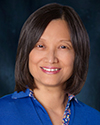
Worcester (MA), USA
Jing Xiao
Primary Keywords: Assembly; Compliant Assembly; Dexterous Manipulation; Manipulation Planning; Mobile Manipulation
Secondary Keywords: Autonomous Vehicle Navigation; Collision Avoidance; Dual Arm Manipulation; Haptics and Haptic Interfaces; Perception for Grasping and Manipulation; Reactive and Sensor-Based Planning
January 1, 2024 - December 31, 2028
Candidates from RAS Geographical Area 2 (IEEE Region 8)- Europe, Middle East & Africa
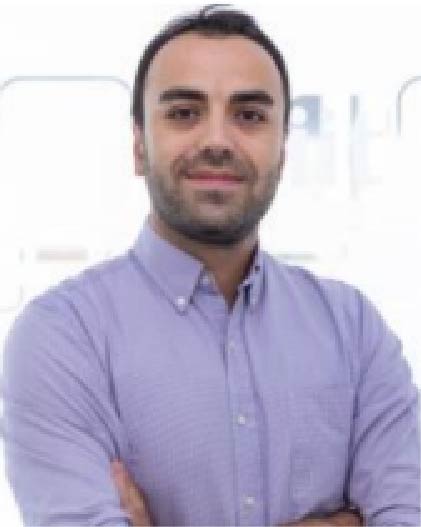
Genova, Italy
Arash Ajoudani
Talk #1
Ergonomic human-robot interaction and collaborationThis talk will present the new concept of ergonomic human-robot interaction and collaboration. In the first part, an overview of the reduced-complexity human dynamic modeling and the associated ergonomic factors such as overloading torques, body compressive forces, fatigue, will be presented. Next part will focus on the control of human-robot interaction and collaboration, through an optimization problem that takes into account the ergonomic requirements of the human co-worker. Using the reduced-complexity whole-body dynamic model of the human, the position of the interactive/collaborative tasks in the workspace will be optimized. In this configuration, the ergonomic indexes, such as the overloading torques, i.e. the effects of an external load in human body joints, are minimized. In addition, the optimization process includes several constraints, such as human arm manipulability properties, to ensure that the human has a good manipulation capacity in the given configuration. The main advantage of this approach is that the robot can potentially help to reduce the work-related strain and increase the productivity of the human co-worker.
Talk #2
A novel framework of context-aware and adaptive interaction between the robot and uncertain environmentsNowadays, robots are expected to enter various application scenarios and interact with unknown and dynamically changing environments. This highlights the need for creating autonomous robot behaviors to explore such environments, identify their characteristics and adapt, and build knowledge for future interactions. To respond to this need, this talk presents a novel framework that integrates multiple components to achieve a contextaware and adaptive interaction between the robot and uncertain environments. The core of this framework is a novel self-tuning impedance controller that regulates robot quasi-static parameters, i.e., stiffness and damping, based on the robot sensory data and vision. The tuning of the parameters is achieved only in the direction(s) of interaction or movement, by distinguishing expected interactions from external disturbances. A vision module is developed to recognize the environmental characteristics and to associate them to the previously/newly identified interaction parameters, with the robot always being able to adapt to new changes or unexpected situations. This enables a faster robot adaptability, starting from better initial interaction parameters. The application of this framework in various interaction scenarios such as soft material handling, item sorting, load carrying, will be presented.
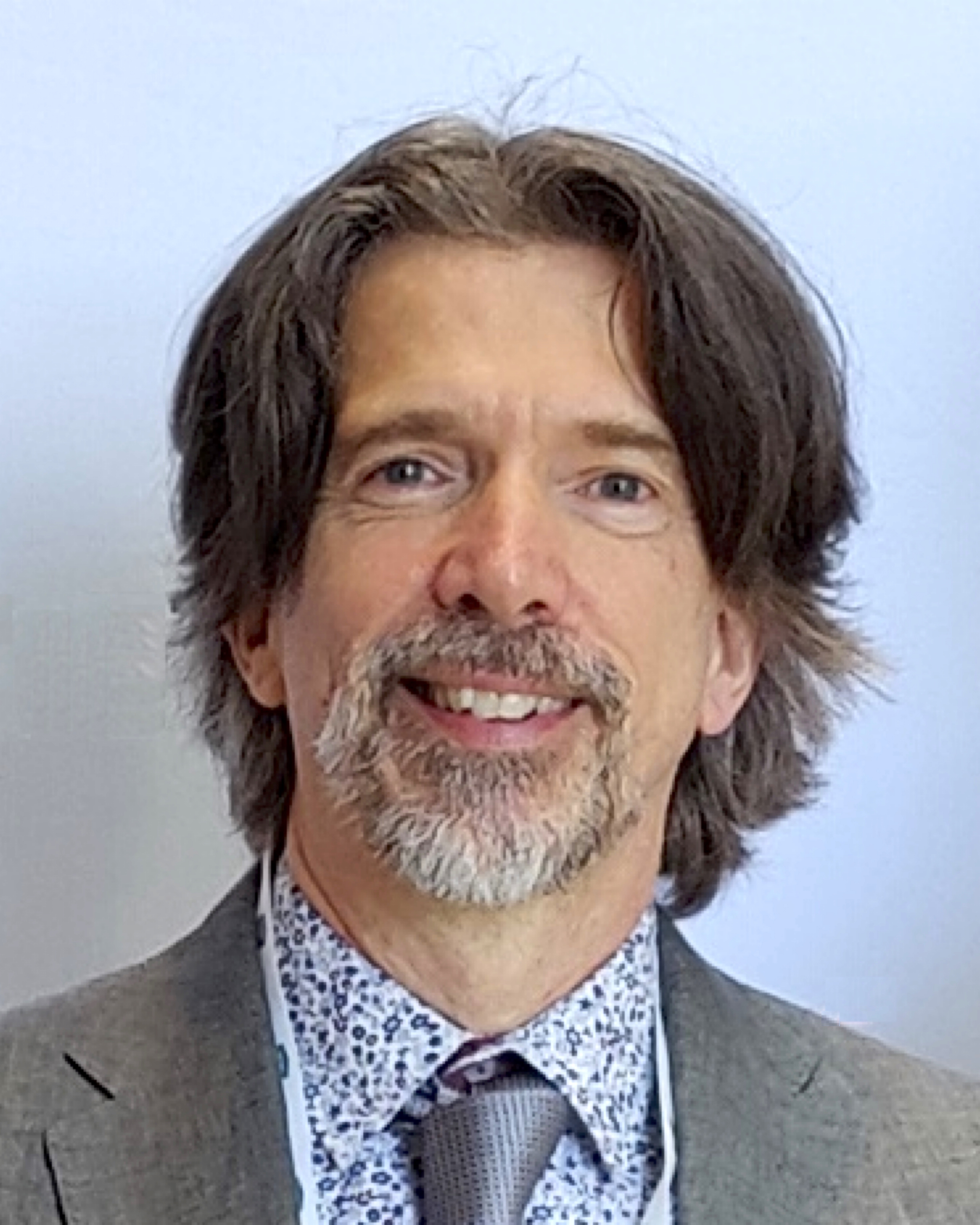
London, UK
Kaspar Althoefer
Kaspar Althoefer (AM’02-M’03-SM’19) Professor Kaspar Althoefer was the General Chair of this year’s International Conference on Robotics and Automation (ICRA 2023) that took place in London. He is an experienced roboticist leading competitively funded research on soft robotics, tactile perception and robot-environment interaction systems with applications in minimally invasive surgery, assistive technologies and human-robot interaction at Queen Mary University of London, acquired more than £8.25M ($10M) as principal investigator from national/international funding bodies and successfully completed more than 30 PhD projects.
Professor Althoefer’s research team currently comprising of 6 postdoctoral research associates and PhD students is involved in funded collaborative research with internationally leading companies and European research organisations creating novel robot-assisted solutions for ergonomically optimised human-robot interaction, intelligent manipulation and remote inspection based on embedded force/tactile sensing and novel soft and stiffness-controllable robot structures. The team has built a large portfolio of projects in application-oriented research for healthcare, manufacturing, construction, and the nuclear sector with funding from organisations such as the European Commission (including coordination of two EU-projects), UK’s Engineering and Physical Sciences Research Council (EPSRC), Innovate UK, Wellcome Trust and UK-based charities, exceeding £30M and producing more than 500 peer-reviewed papers.
CONFERENCES:
- 2023: General Chair, 40th IEEE International Conference on Robotics & Automation (ICRA), London
- 2023: Co-Organiser of Workshops on “Soft Robotics: Fusing function with structure”, “Blending Virtual and Real Visuo-Tactile Perception” and “Robot assisted safe manipulation of hazardous materials”, International Conference on Robotics & Automation (ICRA) 2023, London
- 2018-22: Editor, International Conference on Robotics and Automation (ICRA)
- 2017-20: CPRB Editor, Intelligent Robots and Systems (IROS)
- 2009, 12-15, 17: Associate Editor, International Conference on Robotics and Automation (ICRA)
- 2015-16: Associate Editor, Intelligent Robots and Systems (IROS)
- 2015: Robot Competition Co-Chair, IEEE/RSJ International Conference on Intelligent Robots and Systems (IROS), Hamburg, Germany.
- 2015: Organiser of Workshop on Safety for human-robot interaction in industrial settings, IEEE/RSJ Int. Conference on Intelligent Robots & Systems (IROS), Hamburg, Germany.
- 2014: Workshop Organiser, IEEE Int. Conf. on Robotics and Automation (ICRA), Hong Kong.
- Member of Organising Committee for 10+ international conferences, including ICRA and IROS.
COMMITTEES/BOARDS (RAS):
- 2019-21: Elected member of IEEE RAS AdCom
- 2020-22: Member of Special Interest Group on Humanitarian Technologies (RAS-SIGHT) • 2020-21: Member of the IEEE RAS Early Academic Career Award Nomination Committee
- 2019-23: Member of the RAS Conference Advisory Board (CAB)
- Reviewer for the top robotics and engineering journals, including TRO, TBME, IEEE Sensors, IEEE/ASME Transactions on Mechatronics.
- Paper Review Board Member for many international conferences, including ICRA and IROS.
SECTIONS/CHAPTERS:
- Since 2017: Committee Member of IEEE UK and Ireland Robotics & Autonomous Systems Chapter
SOCIETY: Robotics and Automation
- Since 2002/2019: Member/Senior Member of IEEE
- 2020/21: Guest Editor IEEE RAM Special Issue on robotics response for the COVID-19 outbreak
- Since 2019: Distinguished Lecturer
OTHER:
- Since 2015: Specialty Chief Editor, Biomedical Robotics, Frontiers in Robotics and AI
- Since 2018: Editorial Board Member, Journal of Robotics, MDPI
QUALIFICATIONS:
I believe that I am best suited for this position because of my long-standing expertise and experience in multiple areas of robotics ranging from soft robotics, force/tactile sensing for intelligent robot manipulation, embedded intelligence solutions for robotics to human robot interaction with applications in areas of medical robotics, assistive technologies, rehabilitation and manufacturing. I have been involved in robotics for more than 25 years and have excellent collaborative relationships with robotics scholars in Europe and internationally. I am aware of the current scientific advancements in robotics at the major robotics research organisations across the globe. I will be ideally suited to serve again as an AdCom member because I will be able to make informed decisions on matters relevant to the Committee and promote IEEE RAS world wide. I am very familiar with the AdCom procedures having been an elected member of AdCom from 2019 to 2021.
MAJOR ACCOMPLISHMENTS:
- In my role as General Chair, I successfully organised and run the 40th IEEE International Conference on Robotics & Automation (ICRA), London.
- Editor, International Conference on Robotics and Automation (ICRA), 2018 to 2022
- CPRB Editor, Intelligent Robots and Systems (IROS), 2017 to 2020
- On several occasions: Associate Editor and reviewer for ICRA and IROS; Reviewer for many IEEE Journals and Transactions
- Specialty Chief Editor, Biomedical Robotics, Frontiers in Robotics and AI, since 2015
POSITION STATEMENT:
If elected, I will
- support the IEEE RAS section to promote robotics world-wide by different means, and, specifically, by contributing to the organisation of international robotics conferences. Given my previous experience in successfully planning and executing ICRA 2023 in London, I am highly qualified to offer guidance and insights on the coordination of large-scale robotics events. I am particularly keen to find ways that will reduce the enormous carbon footprint associated with such events.
- actively endorse initiatives aimed at enhancing the representation of women in both research and leadership roles within robotics, spanning academia and industry,
- continue to actively involve myself in the scientific advancements of robotics especially in my areas of research, soft robotics and tactile perception,
- contribute to the introduction of robotics in a wide range of application areas including healthcare, care and manufacturing, in a human-centred and ethical way,
- provide my strong support to further strengthen the standing of Europe’s robotics at the world stage,
- help creating the next generation of roboticists by educating students about the fundamentals of robotics as well as most recent advancements in the field,
- promote robotics in an inclusive way and, especially, create opportunities for robotics researchers from low-income countries.

Karlsruhe, Germany
Torsten Kroeger
TORSTEN KROEGER, Germany
Torsten Kroeger (AM’03-M’04-SM’21)
- 07/2021 - present, Chief Technology Officer, Intrinsic, an Alphabet Company, Germany/USA
- 04/2017 - present, Full Professor of Computer Science (W3), Karlsruhe Institute of Technology (KIT), Karlsruhe, Germany (on leave)
- 04/2014 - present, Visiting Scientist, Department of Computer Science, Artificial Intelligence Lab, Stanford University, Stanford, CA, USA
- 03/2019 - 06/2021, Director of Engineering, (Google) X, Germany/USA
- 11/2017 - 03/2019, Co-founder and CEO, Loom Vision, Inc./GmbH, Karlsruhe, Germany
- 06/2017 - 03/2019, Lead, Robotics Software, Fraunhofer IPA, Stuttgart, Germany
- 04/2014 - 03/2017, Division Manager, Robotics Software, Google X, Mountain View, CA, USA
- 03/2010 - 03/2014, Lecturer and Research Associate, Department of Computer Science, Artificial Intelligence Lab, Stanford University, Stanford, CA, USA
- 05/2010 - 03/2014, Founder and CEO, Reflexxes GmbH, Hamdorf, Germany
- 04/2009 - Dr.-Ing. (PhD) in Computer Science, TU Braunschweig, Germany
IEEE ACTIVITIES:
COMMITTEES/BOARDS:
- 01/2018 - present, Vice President of the IEEE Robotics and Automation Society Conference Activities Board
- 01/2018 - present, Member of the IEEE Robotics and Automation Society Electronic Products and Services Board
- 01/2016 - present, Member of the IEEE Robotics and Automation Society Executive Committee
- 01/2012 - present, Member of the IEEE Robotics and Automation Society Technical Activities Board
- 01/2019 - present, Member of the IEEE Technical Program Integrity Committee (TPIC)
- 01/2021 - present, Member of the IEEE Conference Quality Committee (CQC)
- 01/2014 - present, Member of the IEEE Robotics and Automation Society Awards Evaluation Committee
- 01/2020 - present, Member of the IEEE Robotics and Automation Society Awards Committee
- 01/2012 - 12/2015, Member of the IEEE Robotics and Automation Society Industrial Activities Board
- 01/2014 - 12/2017, Associate Vice President of the IEEE Robotics and Automation Society Conference Activities Board
- 01/2016 - 12/2017, Secretary of the IEEE Robotics and Automation Society
- 01/2014 - 12/2015, Member of the IEEE Robotics and Automation Society Electronic Products and Services Board
REGIONS: 6 and 8
SOCIETY: IEEE Robotics and Automation Society
CONFERENCES:
- 2018 Conference on Robot Learning (CoRL), Zurich, Switzerland (Sponsorship Co-chair)
- 2018 IEEE/RSJ International Conference on Intelligent Robots and Systems, Madrid, Spain (Exhibitions Co-chair)
- 2018 International Symposium on Experimental Robotics, Buenos Aires, Argentina (Program Chair)
- 2018 IEEE International Conference on Robotics and Automation, Brisbane, Australia (Electronic Media Chair)
- 2017 IEEE/RSJ International Conference on Intelligent Robots and Systems, Vancouver, Canada (IT Chair)
- 2017 IEEE International Conference on Robotics and Automation, Singapore (Interactive Session Co-chair)
- 2016 IEEE International Conference on Simulation, Modeling, and Programming for Autonomous Robots, San Francisco, CA, USA (General Chair)
- 2016 IEEE/RSJ International Conference on Intelligent Robots and Systems, Daejeon, South Korea (Industry Session Co-chair)
- 2015 IEEE/RSJ International Conference on Intelligent Robots and Systems, Hamburg, Germany (Exhibitions Chair)
- 2014 IEEE/RSJ International Conference on Intelligent Robots and Systems, Chicago, IL, USA (Information Technology Chair)
- 2014 IEEE Workshop on Advanced Robotics and its Social Impacts, Evanston, IL, USA (Publicity Chair)
- 2011 IEEE/RSJ International Conference on Intelligent Robots and Systems, San Francisco, CA, USA (Local Arrangements Chair)
- 2011 IEEE International Conference on Robotics and Automation, Shanghai, China (Workshops and Tutorials Co-chair)
- 2009 German Workshop on Robotics, Braunschweig, Germany (Co-organizer)
QUALIFICATIONS:
- 2018 IEEE RAS Distinguished Service Award
- 2018 IEEE Best Associate Editor Award, IEEE International Conference on Robotics and Automation
- 2014 IEEE RAS Early Career Award
MAJOR ACCOMPLISHMENTS:
1) Second Edition of the Springer Handbook of Robotics
The Second Edition of the Springer Handbook of Robotics is a comprehensive reference source combining basic and advanced developments. Torsten is the Multimedia Editor of this edition, which became the most downloaded engineering book in history according to SpringerNature. With contributions from 228 authors, the Multimedia Extension offers video and AR content for each of the 80 chapters of the book. The book was also the first engineering book that was accompanied by an augmented reality app for mobile phones, giving readers easy access to additional comprehensive multimedia content.
2) Foundational Contributions to Real-time Robot Motion Planning
Torsten’s research on real-time motion planning resulted in a new class of algorithms that are able to deterministically generate robot motions in real-time in less than one millisecond. These algorithms enable robots to react to sensory input instantly (e.g., force/torque, distance, vision). His Reflexxes Motion Libraries are used in thousands of research labs, have powered Robonaut on the International Space Station, humanoid robots, industrial robots, and service robots. These algorithms are also the foundation for his own and others’ research works on safe and certifiable human-robot collaboration.
3) Mentorship and Education of Students and Entrepreneurs
With his enterprise experience at Google, X, and Intrinsic and with his entrepreneurial experience as founder and former CEO of Reflexxes, Loom Vision, and Tirac Engineering, he has organized annual industrial forums and workshops with a strong focus on startup companies. Through that, he became a mentor of students and entrepreneurs within RAS covering all regions worldwide. Since 2012, he has spoken at and contributed to many RAS Student Activities (e.g., panels, talks and presentations, workshops, and luncheons).
4) Leadership Contributions, IEEE RAS Conference Activities
In 2014, Torsten was instrumental in re-organizing the structure of CAB with its new split into (i) organizational, (ii) technical, (iii) financial, and (iv) publications-related committees. Since then, the portfolio grew from under 30 to more than 80 conferences. Torsten has set up scalable processes that offer more support for conference organizers; he has led the development of an online portal for all conference organizers giving them access to data and files for their conference; he re-created the conference section of the RAS website; he organizes annual workshops for RAS conference organizers; he has initiated and led the development of a database to evaluate the technical quality of all conferences in the RAS portfolio; in 2020, he stepped in and co-lead the organization of the first edition of ICRA during the COVID-19 pandemic; most recently, he has initiated the establishment of an ICRA steering committee; even during the pandemic, the society income from conferences only dropped slightly and remained almost constant.
5) IEEE RAS Society Leadership
In addition to his contributions to conferences, he has been a member of ExCom for six years. His service has impacted almost all parts of RAS. He is one of the go-to persons for all senior leaders of the society. In 2012, Torsten re-created the website for all Technical Committees and became responsible for creating and maintaining more than one third of the RAS website’s content at the time.
Position Statement: If elected, I will serve members of the IEEE Robotics and Automation Society with a focus on these areas:
Improving RAS Leadership Structures to Better Serve RAS Members
To accommodate the accelerating growth of the IEEE RAS Society, changes in the society leadership structure are required. The future structure needs to allow more staff members and more volunteers to work together efficiently and effectively, so that larger numbers of members and student members can benefit more from their membership of our Society.
Increasing Transparency
Many processes within RAS are only described in non-public or outdates documents, so that it is challenging for members and volunteers to get access to the latest information. For example, documents describing the society operations with the work or even the existence of sub-committees are not available to RAS members. With the goal of creating more trust, improving the efficiency and transparency of committee work and process, I will help to offer more content and information on the RAS website.
Commitment to Diversity
The success of IEEE Robotics and Automation Society depends the talents and perspectives of people with different personal, cultural, and disciplinary backgrounds. I am committed to advancing diversity in the technical profession, and to promoting an inclusive and equitable culture that welcomes, engages, and rewards all who contribute to the field, without regard to race, religion, gender, disability, age, national origin, sexual orientation, gender identity, or gender expression.
Improve Publication Processes
The publication model of IEEE journals and conference proceedings is getting outdated. For example, the research communities of new and rising domains like Artificial Intelligence often chose to stay independent and not work under the IEEE umbrella. arXiv is playing a significant role in fast-moving fields like machine learning. I will offer support to improve the publication process and models, so that RAS - and in particular IEEE Xplore - remain attractive to all fields of robotics and automation. This also includes work on Open Access publication models.
More and Better Online Tools for Members and Volunteers
Most executive boards still use many manual processes. For example, the conference activities board manually tracks the performance and quality of RAS-sponsored conferences. There is a major need for more and better online tools. Our newly implemented online database for conference organizers can be improved by getting populated automatically. Such a database will serve (i) conference organizers by providing them data and files from previous editions of their conference and (ii) the RAS leadership team by offering tools for portfolio analysis (e.g., IEEE Xplore downloads, finance performance, auto analysis of technical quality using AI, document database for conference reports and conference budgets).
Support for All IEEE RAS Vice Presidents
After six years as a member of the IEEE RAS Executive Committee, I would like to make an offer to all Vice Presidents to help, support, mentor, guide, and advise them in their operational work the IEEE Robotics and Automation Society. If and when desired, I would like to share learnings from my time.
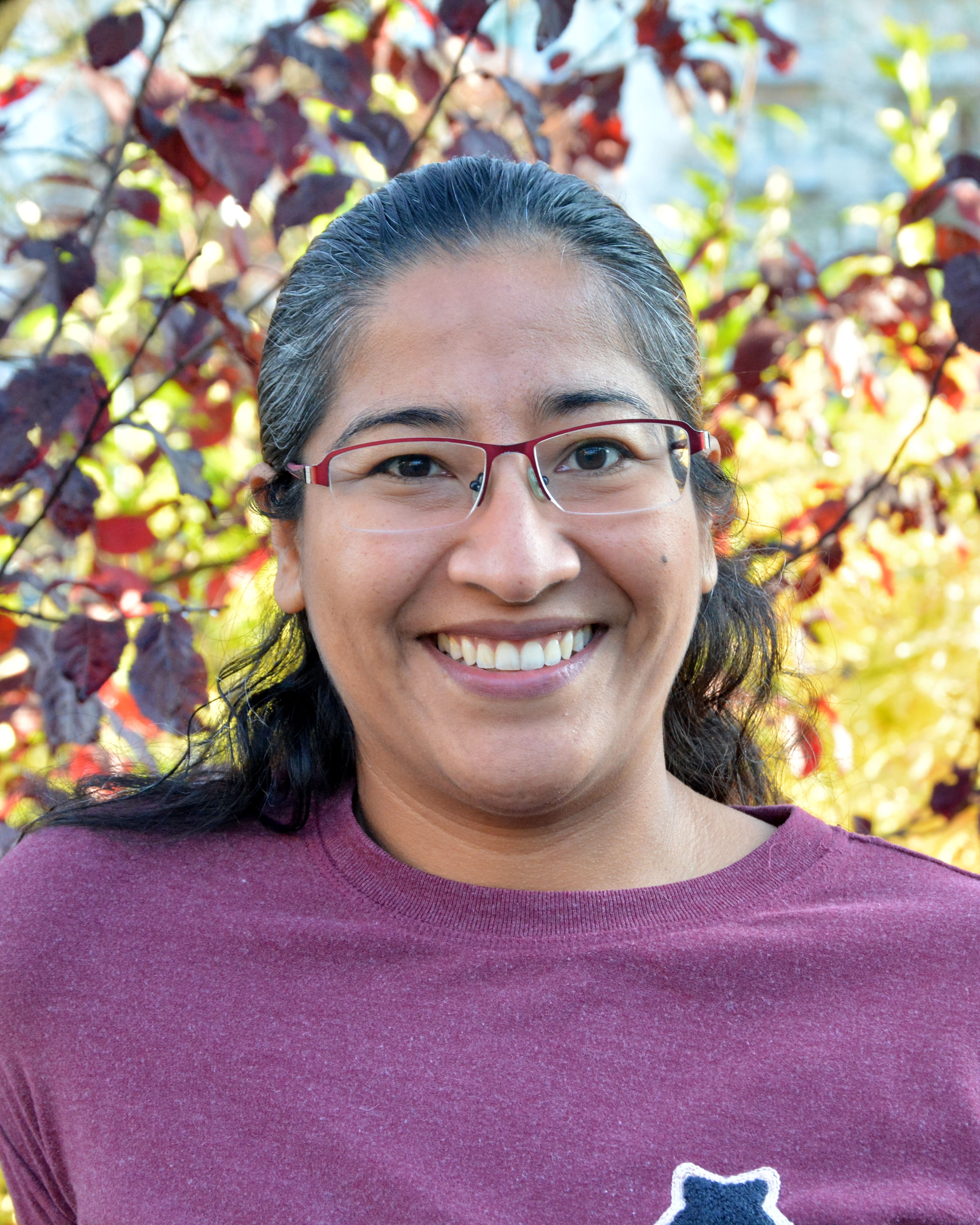
Gothenburg, Sweden
Karinne Ramirez Amaro
KARINNE RAMIREZ-AMARO, Sweden
Karinne Ramirez-Amaro (GSM’13-M’16) is an Assistant Professor at the Chalmers Institute of Technology since September 2019. Previously from 2015-2019, she was a postdoctoral researcher at the Institute for Cognitive Systems at TUM. In 2015, she finished her PhD research (summa cum laude) at the Chair for Cognitive Systems in the Department of Electrical and Computer Engineering at TUM under the supervision of Prof. Gordon Cheng. She was awarded the prize of the excellent Doctoral degree for female engineering students, granted by the state of Bavaria, Germany in September 2015, and in December 2015 she received the Laura Bassi award granted by TUM and the Bavarian government. Previously, she was awarded a scholarship for a PhD research by the DAAD – CONACYT and she received the Google Anita Borg scholarship in 2011. She has been involved in various roles in research projects funded by different grant schemes, e.g EU-FP7 (Factory-in-a-day), DFG-SFB (EASE), DAAD (GEnKo), CHAIR (CRAFT). Her research interests include Artificial Intelligence, expert systems, semantic intelligence, human activity recognition, prediction of human intentions.
IEEE and IEEE RAS ACTIVITIES:
COMMITTEES & CONFERENCES:
- 2018 IEEE-RAS Associate Vice President of the Conference Operations Committee. This committee is part of the IEEE Conference Activities Board (CAB), USA.
- 2020 Member of the organizer committee for the conference IEEE ICRA 2024 (JP).
- 2020 Chair of the Special RAS Events as part of the ICRA 2020 virtual conference.
- 2019 Member of the organizer committee for the conference IEEE ICRA 2023 (UK). I will be in charge of the student activities & K-12 outreach chair.
- 2019 Co-chair of the RAS Conference Organizers Workshop at ICRA, Montreal, Canada.
- 2018 Chair and organizer of the IEEE Women in Engineering (WIE) lunch during the CASE conference, Munich, Germany.
- 2018 Co-chair the IEEE-IROS session “Legged Robots II”, Madrid, Spain.
- 2017 Main organizer of 7 International Workshop as part of the IROS conference, e.g. “Semantic Policy and Action Representations for Autonomous Robots (SPAR)”, 150 participants. Canada, Spain, China & Czech Republic.
- 2016 Main organizer of 4 International outreaching workshops, e.g. the symposium WeLead – Women Leaders in Artificial Intelligence, Robotics and Engineering, around 350 participants. Munich, Germany.
SOCIETY:
- 2021 Panellist at the RAS Town Hall, ICRA (Online).
- 2021 Mentor and part of the IEEE RAS Young Reviewers Program.
- 2020 Panellist to the IEEE RAS Women in Robotics Discussion, online.
- 2020 Mentor at the IEEE Women in Engineering (WiE).
- 2019 Panellist at the IEEE RAS Women in Engineering (WIE) luncheon, IEEE-IROS, Macao, China.
OTHER:
- 2020 Associate Editor of the IEEE Robotics and Automation Letters (RA-L).
- 2018 Associate Editor of International Conferences such as ICRA, IROS, Humanoids, ECAI, SII.
- 2015 Reviewer of more than 12 peer-reviewed journals, e.g. IEEE T-RO, RA-L, HMS, RAS, NeuNets, CEA, KI, JIST, IET, JVCI.
- 2012 Reviewer of more than 35 international conferences, e.g. ICRA, IROS, Humanoids, AAAI, IJCAI, ECAI, CoRL, RO-MAN, ICAR, SII.
QUALIFICATIONS:
I have contributed to the IEEE-RAS for more than 10 years first as a reviewer and currently as an Associate Vice-President (A-VP) for CAB. During my time as A-VP, I have interacted with different conference organizers sponsored by RAS and I have understood the needs and struggles they faced during the last couple of years. Furthermore, I am an active member of the society since I participate as a speaker, reviewer, organizer, and attendee at the different conferences/journals sponsored by RAS. This gives me the opportunity to identify the needs of the society which I can communicate to the conference organizers and Editor-in-Chiefs to enhance the experience and expectations of the members. This acquired experience makes me an ideal candidate for this position despite my young career stage.
MAJOR ACCOMPLISHMENTS:
As part of my current role of A-VP Operations at the Conference Activity Board (CAB), my team and I have launched different initiatives that will benefit the future conference organizers, e.g:
- We have launched the new RAS conference document library (https://www.ieee-ras.org/about-ras/volunteer-resources/ras-conference-leadership-portal). This new conference library contains information from more than 200 conferences that are (co-)sponsored by RAS. This information will help future organizers to improve their planning for hosting high-quality conferences.
- We have archived more than 120 conference websites. This means that the information and details of the past conference will always be preserved on the IEEE-RAS site.
- We provided support to the conferences affected by COVID-19 and we published some guidelines and best practices after collecting feedback from more than 91 conference organizers (https://www.ieee-ras.org/conferences-workshops/coronavirus-covid-19).
- We collaborated with the Members Activity Board (MAB) to introduce, to the society, the newly established committee RAS-CARES (Committee to Aid Reporting on Misconduct concerns, https://www.ieee-ras.org/about-ras/diversity-page/ieee-ras-cares).
Position Statement: Our Robotics and Automation Society (RAS) is evolving rapidly and we need to enhance the services offered by the IEEE RAS to their members. This evolution represents a big challenge that can be addressed by increasing the diversification of the members of the society. If elected to the RAS administrative committee (AdCom), one of my major goals will be to foster younger and diverse members to be involved in important committees such as CAB, MAB, etc. I believe that if we enhance the diversification of the different committees we can broaden the participation of new members. This will open up new opportunities that will allow for new ideas and initiatives that can greatly benefit our society. Furthermore, this will contribute to a transparent and fair decision-making process at the different levels of the society.
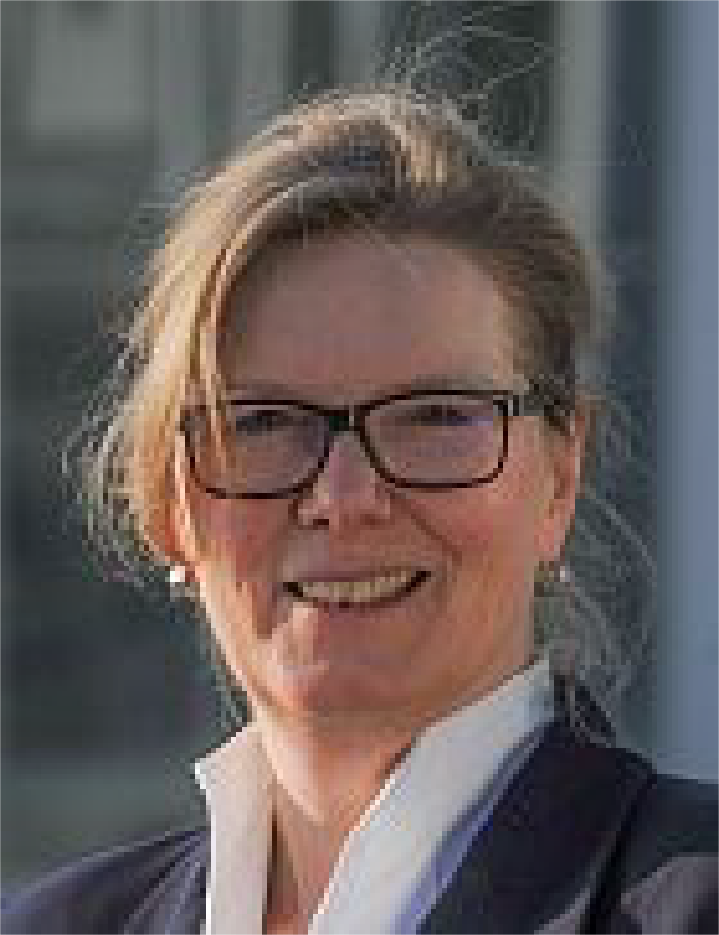
Munich, Germany
Birgit Vogel-Heuser
Birgit Vogel-Heuser (AM’02-M’04-SM’12-F’23) I joined IEEE late as full professor due to commitments to the German automation associations and CTO in industry. I am actively involved in IEEE CASE and as Automation Coordinator aiming to actively contribute to the future of the society in general by developing and teaching human centered automation. Since 2023 I am IEEE fellow for contributions to evolvable, adaptable field-level automation architectures for manufacturing systems and logistics.
IEEE ACTIVITIES:
COMMITTEES/BOARDS:
RAS TAB Board- TAB Automation Chair
RAS Automation Cluster Chair
RAS Distinguished Lecturer of 2 TCs
RAS TC Co-Chair of TC Digital Manufacturing ad human factors Region: Europe
SOCIETY:
RAS, IES, SMC Conferences: GC CASE 2018, PC CASE 2023, member CASE steering committee; keynote speaker at RAS CASE 2022 and IES IECON 2017 and other conferences T-ASE Senior Editor
QUALIFICATIONS:
Strong motivation; experience in industry and academia in different positions; long expertise in leading working groups, TCs in different associations; honest and hardworking, international cooperation network; well connected to industry; reliable and precise management including all participants and opinions.
MAJOR ACCOMPLISHMENTS:
Distinguished Lecturer TAB Automation Chair- strengthening the cooperation process in the Automation Cluster GC (2018) and PC Chair (2023) of IEEE CASE
POSITION STATEMENT:
In a world with many rapidly changing information and an information overload of individuals it is important to ease the access to relevant, reliable information, to teach sytematic, scientific approaches, to establish easy to use communication structures, to strenghten the cooperation between academia, industry and institutions, to allow RAS to take its position as a huge source of knowlege and expertise in robotics, automation, automated driving, AI etc,. Robotics and automation are similar in many ways and substantially overlap in topics and research communities, but there are also differences. I would like to contribute to bring these communities closer by focusing on research areas at the intersection of Robotics and Automation. We need to contribute to a sustainable future and rely on our scientific curiosity, strength of innovation and ethical fundaments. There is no easy action plan to recommend but continuous transformation process to be taken involving all groups in IEEE RAS.
Candidates from RAS Geographical Area 3 (IEEE Region 10)- Asia & Pacific Rim
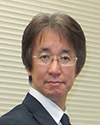
Tokyo, Japan
Fumihito Arai
FUMIHITO ARAI, Japan
Fumihito Arai (M’91) received Master of Eng. degree from Tokyo Univ. of Science in 1988. He received Dr. of Eng. from Nagoya University in 1993. Since 1994, he was Assistant Professor of Nagoya University. Since 2005, he was Professor of Tohoku University. Since 2010, he was Professor of Nagoya University. Since 2020, he has been Professor of The University of Tokyo. He was the Vice-President for Technical Activities, IEEE Nanotechnology Council (2002, 2003), AdCom Member of IEEE Robotics and Automation Society (RAS) (2009-2011, 2012-2014, and 2019-2021), the Vice President for Technical Activities, IEEE RAS (2014-2015, 2016-2017). His research fields are Micro-nano Robotics and Bio-Robotics. He received 97 awards, for example, Early Academic Career Award in Robotics and Automation from IEEE Robotics and Automation Society in 2000, Best Conference Paper Award at ICRA2012. He is the author of 419 academic papers. He is Editor in Chief of Advanced Robotics (2012-2017).
IEEE ACTIVITIES:
COMMITTEES/BOARDS:
Co-chair, IEEE RAS Technical Committee on Micro/Nano Robotics, 2001-2021
SOCIETY:
- AdCom Member, IEEE Robotics and Automation Society, 2009-2011
- AdCom Member, IEEE Robotics and Automation Society, 2012-2014
- AdCom Member, IEEE Robotics and Automation Society, 2019-2021
- Vice-President for Technical Activities, IEEE Robotics and Automation Society, 2014-2015
- Vice-President for Technical Activities, IEEE Robotics and Automation Society, 2016-2017
- Vice-President for Technical Activities, IEEE Nanotechnology Council, 2002-2003
CONFERENCES:
- General Chair, IEEE/Nagoya University WWW 1993
- General Chair, IEEE-NANO 2005
- General Co-Chair, IEEE/SICE SII 2009
- General Co-Chair, International Symposium on Multi-scale Intelligent Systems (MIS2012)
- General Co-Chair, MHS, 2013, 2014, 2015, 2016, 2017, 2018, 2019, 2020, 2021
- General Chair, MARSS2018
- Program Co-Chair, MHS, 1995-2012
- Program Vice-Chair, IEEE-NANO 2004
- Program Co-Chair, IEEE-NANO 2009
- Program Chair, IEEE-NANO 2016
- Program Chair, IROS 2019
- Editor, Conference Paper Review Board of IROS2014, 2015
- Editor, ICRA Conference Editorial Board, 2016, 2017
- General Affair Chair, International Joint Conference on Neural Networks,1993
- General Affair Chair, ICRA1995
- Award Chair, IEEE-NANO 2007
- Treasurer of IEEE International Conference on Evolutionary Computation,1996
- Tutorials and Workshops Co-Chair, IROS2013
- Invited Session Chair, ICRA2014
- Program Committee member of International Conference such as ICRA, IROS, IECON, MEMS, IEEE-NANO, etc. for many times
OTHER:
Associate Editor, IEEE Transactions on Automation Science and Engineering, 2008-2012
QUALIFICATIONS:
Fumihito Arai served for more than 25 years in IEEE. He has extensive experience with IEEE RAS activities as a committee member(Excom, Adcom) and conference organizer, therefore, he understands IEEE, RAS organization, governance, operations, etc. He understands the history and vision of IEEE and he has sufficient knowledge and strong motivation in contributing to the society. He served as AdCom member of RAS(2009-2011, 2012-2014, and 2019-2021). He served as VP for Technical Activities of RAS(2014-2015 and 2016-2017). He contributed several IEEE conferences such as ICRA, IROS, MHS, MARSS, MEMS and so on. Recently, he contributed to IROS2019 as Program chair. He knows how to organize conference and how to activate RAS activities. Based on his extensive experience with RAS, he can support to guide the society for the benefit of members. He is motivated in making RAS more beneficial for members, activating RAS activities and supporting members, especially young researchers and involving emerging fields, and wishes to support RAS to keep growing with financial transparency. He is one of the ideal candidates for this position.
MAJOR ACCOMPLISHMENTS:
- Contributions to RAS as AdCom member, 2009-2011, 2012-2014, and 2019-2021. Contribution to several committees, such as TAB, MAB, PAB, CAB, SCTP, Award, Nomination, etc.
- RAS Award committee 2011, RAS Early Career Award nomination committee 2013, 2017, and so on. Provided fair and unbiased evaluation of candidates.
- Co-chair of Technical Committee on Micro/Nano Robotics and Automation Pioneering works, promotion, and initiation of Micro/Nano Robotics which result in the current vibrant research on Micro/Nano Robotics and Automation at RAS sponsored conferences. Organization of Workshops. Education, encouraging young people.
- Vice-President for Technical Activities, IEEE Robotics and Automation Society, 2014-2015 and 2016-2017. Contribution to chair TAB, and many other volunteer works, such as establishment of new TC, Triennial review, CEMRA program to create educational programs, RAS webpage contents, etc. A lot of new TCs were launched in RAS when he served as VP TAB.
- Vice-President for Technical Activities, IEEE Nanotechnology Council (NTC), 2002-2003. He was the first VP for Technical Activities of NTC. Started new TCs, which results in great success of TC activities in NTC and great contribution to IEEE-NANO for about 15 years from the beginning.
Position Statement: The field of Robotics and Automation is growing rapidly, and IEEE RAS becomes very large society in IEEE. I observed growth of RAS for the last 25 years. For the last 10 years, I have experienced RAS organization as Adcom member and Excom member, and I learned governance and operations. RAS is well organized in terms of growth of membership, pioneering emerging fields, encouraging young people, geographical balance of organization, establishment and stable organization of RA-L, etc. It seems successful for us, but I feel we are facing a lot of issues in front of us. For example, size of the major conferences is becoming large and will become much larger than we expected, registration fee of some conferences becomes expensive compared with those more than 10 years ago, number of participants from industry is not increased as we expected, efforts on conference organization under transitioning to a new normal in the post-covid era, and so on. For the continuous success of RAS, I would like to consider the benefit of RAS members first. Now is the transition period of RAS, so it is very important how we organize our society. To realize healthy growth of our society and make our society comfortable and beneficial for all members in the post-covid era, I would like to make efforts to contribute RAS as listed below.
- Keep financial transparency of society and make the registration fee of future conferences and symposiums reasonable for members
- Make conferences and symposiums attractive and meaningful although the size of them becomes large enough
- Improve status of Robotics and Automation researchers by improving the quality of RAS sponsored journals as well as strengthening the linkage of journals such as RA-L with conferences. Then, reconsider the review system of conference papers to reduce the burden of authors who are driven to spend too much efforts for the non-journal papers.
- Develop linkage of industry people and academic people using Technical Committees and conferences for balanced growth of our society and accelerating implementation of robot technologies for the wellness of human and society
- Develop linkage of young people from all over the world with Technical Committees and increase RAS members for sustainable growth of our society
- Keep encouraging emerging fields for future success of our society and members
- Keep enriching RAS webpage, events, SNS, etc. for increasing visibility of IEEE RAS to public and members
- Expand partnership with many organizations and societies for global linkage and keep the world leadership of RAS in the field of Robotics and Automation
- Evolve conference organization system under transitioning to a new normal in the post-covid era. Share good practices and integrate for the benefit of RAS members.

Seoul, Korea
Yonglae Park
YONG-LAE PARK, Korea
Yong-Lae Park (GSM’07-M’09) Prof. Park is an Associate Professor in the Department of Mechanical Engineering at Seoul National University (2016~present). He received his Ph.D. degree in Mechanical Engineering from Stanford University (2010). Prior to joining SNU he was an Assistant Professor in the Robotics Institute at Carnegie Mellon University (2013-2016) and a Technology Development Fellow in the Wyss Institute for Biologically Inspired Engineering at Harvard University (2010~2013). He is the winner of the Best Conference Paper Award in the IEEE International Conference on Soft Robotics (2019), the Okawa Foundation Research Grant Award (2014), the Best Paper Award from the IEEE Sensors Journal (2013), the NASA Tech Brief Award (2012). His current research interests include artificial skins and muscles, soft robots, wearable devices and robots, inflatable robots, and smart structures and materials. His work on soft artificial skin and soft robots were featured in Nature, Discovery News, New Scientist, Engadget, PBS NOVA, and Reuters.
IEEE ACTIVITIES:
COMMITTEES/BOARDS:
- Advisory Board of the IEEE Technical Committee on Soft Robotics
- IEEE EMBS Technical Committee on BioRobotics
- Steering & Program Committee, IEEE International Conference on Soft Robotics, 2020 & 2021
- Program Committee, IEEE International Conference on Soft Robotics, 2018
- Organizing Committee, International Workshop: Can we build Baymax? Soft Robotic and Safe Human-Robot Interaction in Humanoids at IEEE-RAS International Conference on Humanoid Robots, 2015.
SOCIETY:
- IEEE Robotics and Automation Society (RAS)
- IEEE Engineering in Medicine and Biology Society (EMBS)
CONFERENCES:
- Program Chair, IEEE International Conference on Soft Robotics, 2019.
- Associate Editor, IEEE/RSJ International Conference on Intelligent Robots and Systems (IROS), 2021.
- Associate Editor, IEEE International Conference on Robotics and Automation (ICRA), 2019.
- Associate Editor, IEEE International Conference on Robotics and Automation (ICRA), 2018.
QUALIFICATIONS:
Prof. Park has been actively participating in the major IEEE-RAS conferences including ICRA and IROS since 2007 as a graduate student, postdoctoral researcher, and a professor. He recently organized a relatively young IEEE conference successfully, IEEE International Conference on Soft Robotics as a Program Chair, in 2019, and contributed to the growth of the soft robotics society.
MAJOR ACCOMPLISHMENTS:
Successfully organized IEEE International Conference on Soft Robotics, in 2019, as a Program Chair.
Position Statement: IEEE RAS has been growing rapidly in recent years, and interest in robotics is higher than ever these days. At this time, I believe that one of the important roles of AdCom is to represent the diverse interests of researchers around the world and to help IEEE accommodate the needs. I will try to make RAS a society that can respect diversity and the opinions of minorities without falling behind the rapidly changing global trend in robotics. In addition, I will help IEEE establish a much more efficient and convenient conference and journal system than the existing one. I will also help RAS events include more industrial partners and maintain closer relationships between researchers and industries so that technology transfer and commercialization of robotics technologies can be easier and more active. Lastly, in case the current non-face-to-face situation lasts longer than expected, I will help to build a more efficient protocol and system that can be used for conferences and other events in which researchers can participate more actively and conveniently.

Tokyo, Japan
Kenji Suzuki
KENJI SUZUKI, Japan
Kenji Suzuki (S’99-M’03) He is currently a Full Professor of the Faculty of Engineering, Information and Systems, and also Principal Investigator of Artificial Intelligence Laboratory, University of Tsukuba, Japan. He received the Ph.D. in Pure and Applied Physics from Waseda University in 2003. He was a visiting researcher at the University of Genoa, Italy, and also at the Laboratory of Physiology of Perception and Action, at the College de France/CNRS, France. He is now the director of the Center for Cybernics Research, and the vice director of the Center for Innovative Medicine and Engineering at the University of Tsukuba. His primary research interests include wearable robotics, assistive robotics, and affective computing. A special emphasis is laid on the design of empowering people, particularly for children and elderly with special needs. He has published more than 300 peer-reviewed papers and presented a number of invited talks and contributions at conferences in these areas.
IEEE ACTIVITIES:
COMMITTEES/BOARDS:
Robotics and Automation Society: He is a member of IEEE, served as the AdCom member (2019-2021) and the chair of the chapter and international activities committee (2010-2018) at the member activities board (MAB) of the IEEE Robotics and Automation Society. Chapter of the Year Evaluation Committee, Nomination Committee.
SOCIETY:
Robotics and Automation Society: Associate Editor (2017-2020), IEEE Transactions on Automation Science and Engineering
CONFERENCES:
Robotics and Automation Society: Served as the Committee Member at several fully sponsored RAS Conferences and RAS financially co-sponsored Conferences (IEEE ICRA, IEEE/RSJ IROS, IEEE RO-MAN, IEEE BioRob, IEEE ARSO), and will be served as the Program Chair at ICRA 2024, Yokohama.
QUALIFICATIONS:
The candidate has volunteered for IEEE Society committee and Conference organization more than 10 years. From the scientific achievement, he works in the Robotics and Automation field more than 15 years and has published more than 15 papers for the IEEE transactions/journals, and more than 100 papers for these IEEE conference proceedings. In addition to that, his entrepreneur activity regarding the business is also recognized as the runners-up award at the Entrepreneurship Forum and Startup Contest of the IROS2015. He will also be served as the Program Chair at ICRA 2024, Yokohama.
MAJOR ACCOMPLISHMENTS:
- Administrative Committee member of the IEEE Robotics and Automation Society (2019-2021).
- Chair and co-chair of the chapter and international activities committee at the member activities board (MAB) of the IEEE Robotics and Automation Society (2010-2018).
- Associate Editor (2017-2020), IEEE Transactions on Automation Science and Engineering
- Served as the Committee Member at more than 10 RAS conferences
Position Statement: I have enjoyed the volunteering work for more than ten years at RAS such as the AdCom meeting, the chapter and international activities, helped to organize RAS conferences and meetings, and had opportunities to meet with local leaders and members. I also contributed to develop budgets which ensured resources were available to support several local activities while considering the benefit for RAS. As the AdCom member, I have tried to contribute to achieve the RAS mission.
What I have learnt from these experiences is the importance of communication and collaboration among researchers in robotics and automation and other community members. One of the RAS Mission is to facilitate the exchange of knowledge including the interdisciplinary nature of science. As a scientific organization, RAS members have a role in helping solve the challenges of the world, such as Sustainable Development Goals. Throughout these experiences, I would like to work to facilitate the initiation of interdisciplinary collaborations among this community and other professionals.
COVID-19 pandemic has drastically changed the shape of the conference, but I rather see it as an opportunity for a major change in the RAS for the better. The education will benefit greatly from the advancement of online and video archiving, and potential members of the various Chapters who have not been able to attend conferences in the past will have the opportunity to receive more services at RAS conferences. We should move to make the hybrid events, which offer both in-person and digital participation, the standard. These events will accommodate those who cannot or not comfortable to travel. Regarding the financial issue, we had better invest in hybrid-type activities to bring in new RAS members and make conferences and meetings more attractive, and just not continue the past activities but develop new ways to raise revenue.
Publications outcomes in robotics and automation are one of the most important activities from the society. I believe that scientific and technological knowledge in robotics and automation benefit not only the profession but also humanity. From my research experiences in assistive robotics, working together with non-academia, patients, educators and practitioners, technologies can certainly contribute to improve the lives of humanity and provide viable solutions by addressing the relevant world problems.
RAS leaders are challenged to provide services to all members in a number of different areas. To realize this goal, diversity and inclusion will become more important. In the field of robotics and automation, which is closely related to people's lives and society, I would like to contribute to create an environment where more divers members and stakeholders can be active in this field. If given the opportunity to be the AdCom member, I will work even harder, in particular, to leverage the financial resources in order to maximize the strength of our society and community members from different sectors (academia, industry, entrepreneur, young researchers and students).

Tokyo, Japan
Gentiane Venture
GENTIANE VENTURE, Japan
Gentiane Venture (AM’05-M’06-SM’18) I was educated in France following the “grandes ecoles” path. I graduated in 2000 from Ecole Centrale de Nantes, “Robotics” major and simultaneously received a MSc from University of Nantes. In 2003/12, I obtained my PhD sponsored by Peugeot-Citroën, from the same institutions. In 2004/1 I joined the robotics team of CEA (Paris, France) to work on control of haptic micro-manipulators. In 2004/11 I was a JSPS fellow in Prof. Y. Nakamura's group at the Tokyo University (Japan). I continued as Project Assistant Professor until I joined Tokyo University of Agriculture and Technology as Associate Professor to start a lab in 2009/3. Since 2016/7 I am a Distinguished Professor. Since 2018/4 I am cross appointed with AIST. In 2021 I was honored the French National Order of Merit. My research interests include: Dynamics identification, Robot control, HRI, Human movement science, Robotics in education. I pursue interdisciplinary research redefining the boundaries of robotics.
IEEE ACTIVITIES:
COMMITTEES/BOARDS: RAS/WIE
REGIONS: 10 Asia and Pacific
SECTIONS/CHAPTERS: Tokyo Section
SOCIETY: Robotics and Automation Society, Computer Society, Education Society, Engineering in Medicine and Biology Society
CONFERENCES: ICRA, IROS, humanoids, Biorob, EMBC, SMC, HRI, AIM, RO-MAN
OTHER:
- IEEE Senior member
- Committee Member, IEEE RAS CARES (Committee to Aid Reporting on Misconduct Concerns) 2021~
- Senior Editor IEEE Robotics and Automation Letters 2020~
- Editor Proceedings of the IEEE/RAS International conference on Humanoids 2016~
- Associate Editor IEEE Transactions on Robotics 2019~
- Associate Editor IEEE/RAS IROS conference 2012~2016
- Associate Editor IEEE/RAS Humanoids conferences 2014~2016
- Associate Editor IEEE/EMBS Biorob conference 2010~
- Associate Editor ICARV conference 2009~
- Guest Associate Editor IEEE Transactions on Robotics Special Issue on "Movement Science for Humans and Humanoids: Methods and Applications"
- Conference organization executive committee: General chair Humanoids 2019, Award committee member ICRA 2020, Publicity chair Humanoids 2020, RoMAN 2022 Program chair, Workshop and tutorial/ICRA expo co-chair ICRA 2024
- Reviewer for IEEE Transactions on Robotics, IEEE/EMBS Transactions on Biomedical Engineering, IEEE/EMBS Engineering in Medicine and Biology Magazine – Pulse, IEEE Transactions on Intelligent Transportation Systems, IEEE/ASME Transactions on Mechatronics
QUALIFICATIONS:
- More than 20 years of research in robotics and control, 5 years of experience in R&D in France, 16 years in academia in Japan.
- 16 years with IEEE and 16 years with RAS, IEEE senior member, served in the flagship conferences and journals as reviewer, associate editor, editor, publicity chair, program chair, general co-chair.
- I am a challenger with a strong ethics.
MAJOR ACCOMPLISHMENTS:
- I am part of the IEEE/RAS Committee to Aid Reporting on Misconduct Concerns, hoping to promote a safe and fair RAS
- TRO AE and special issue guest AE
- Humanoids 2019 General chair
- RAS WIE columnist for RAM
- Created with D. Kulic, E. Demircan, M. Hayashibe and D, Oetomo the RAS TC on Human Movement Understanding
Position Statement: We are going through times that are challenging our way of living, working and thinking. If elected to the RAS AdCom, I would like with RAS to take up those challenges and pioneer sustainable, fair and inclusive activities while promoting the legacy of our society. There are three topics in RAS that I would like to actively contribute to: educate and train RAS professionals of all generations to our changing world, innovate, renew and make sustainable our gathering methods, attract, and retain members from diverse communities. To achieve these objectives, in addition to promoting inclusive measures and perpetuating the tutorial activities of the society, I propose to create the following:
(1) Global mentor/mentee system:
from my own experience in mentoring and being mentored I learned a lot and I think everyone should have the opportunity to do the same. A mentee learns obviously how to build a career plan, how to be successful at writing projects and papers and run a lab, but surely also learns the history of our society, the depth of our community, the challenges it has been faced with in the past and how it went through it. Things that should never be forgotten. A mentor not only supports the mentee, but it is also an opportunity to learn how the world is changing around more quickly than one can sometime feel it, to discover different systems of thinking, of living and of attitudes towards technology, to be more creative. Such a system serves the three goals of my program.
(2) Ad-Hoc and Ad-Com, conference SPC meeting observers’ program:
Unless you have been lucky to have been invited to serve at the Ad-Hoc, Ad-Com, or a conference organization, there are chances you don’t know how our society is run. Making our society transparent to its members is paramount for me to make RAS sustainable and fair. By opening the meetings to observers, I want to improve the visibility of the values and transparency of our society and promote accessibility of our activities to everyone. Our society is based on volunteering, understanding why one should volunteer is the key to achieve the three goals of my program.
(3) A reward system for volunteers’ activities:
While our community may be growing the number of conference papers submitted and accepted every year follow a much steeper increase and it has doubled in the past 5 years. A similar increase can bee seen in the flagship journals of our society. The workload increase on editors, associate editors and reviewers is clearly visible and finding volunteers is getting more and more difficult. It shows the limitation of the volunteering system that may collapse unpredictably, while at the same time each conference is being more profitable. It is time to acknowledge volunteers’ work by giving back to those who are serving. I suggest volunteer activities are rewarded by discounts to our society’s open access publications fees and conferences attendance fees. This measure I also serving the three goals of my program.





